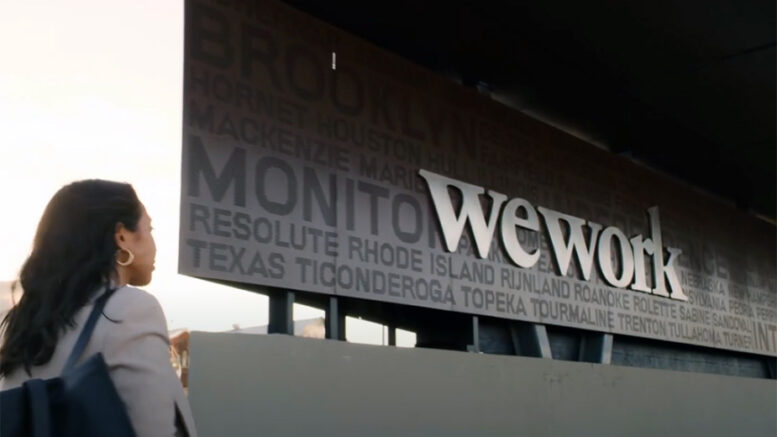As the work-from-home trend continues its dominance, WeWork, the once-famed office space provider, is facing severe challenges, putting British landlords at potential risk of a £3bn deficit in unfulfilled rent payments.
WeWork, which holds the distinction of being London’s primary private tenant, is reportedly struggling to manage its extensive list of rental commitments. According to a comprehensive analysis by The Telegraph, WeWork’s UK branches have locked in leases valued at £3.1bn across over 50 British sites.
The corporation’s recent revelations signal precarious times ahead. Despite previously boasting a valuation of a whopping $47bn (£37bn), WeWork has expressed “substantial doubts” about its ongoing viability. This is further compounded by the plummeting stock prices, which have lost a staggering 97% of their value within the past year.
The business model of WeWork, which involves procuring long-term leases and subsequently subletting them on monthly terms, saw a significant shift in strategy following the unraveling of founder Adam Neumann’s 2019 plans for a New York stock market debut.
Fast forward two years, and the company did go public. Nevertheless, the swelling trend of remote work, combined with an excess in office space, has adversely impacted the firm’s operations.
Recent filings divulge that WeWork held lease commitments in the UK to the tune of £3.8bn by the end of 2021. Despite shutting down several venues, the company still holds debts of approximately £3.1bn spanning 56 properties, with some leases extending up to two decades. Notably, WeWork holds the title of London’s major private tenant, possessing nearly 3 million square feet of space, a size equivalent to three Shard skyscrapers.
Prominent properties in WeWork’s portfolio comprise the 301,488 sq ft Southbank building, owned by Mike Hussey’s Almacantar, and 1 Poultry, which is under South Korea’s Hana Financial’s ownership. Additionally, prestigious landlords like the Qatari royal family and Brookfield Property Partners are stakeholders, with the latter owning a 285,000 sq ft WeWork facility in Canary Wharf.
With a potential WeWork downfall on the horizon, these landlords might be left grappling with massive financial gaps due to unpaid rents. Adding to the complexity, WeWork has been offloading leases and properties via WeWork Capital Advisors, its property arm.
David Tolley, WeWork’s interim CEO, candidly attributed the company’s challenges to an office space glut coupled with the persistent remote working trend. He stated, “Excess supply in commercial real estate, increasing competition in flexible space and macroeconomic volatility drove higher member churn and softer demand than we anticipated, resulting in a slight decline in memberships.”
Despite the daunting challenges, a WeWork representative exuded confidence, saying, “We are confident in our ability to meet the evolving workplace needs of businesses of all sizes across sectors and geographies, and our long term company vision remains unchanged. Our members remain our top priority, and we are resolutely focused on delivering for them for the long term.”







